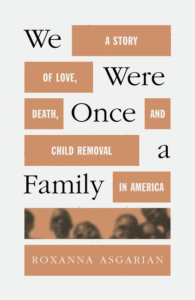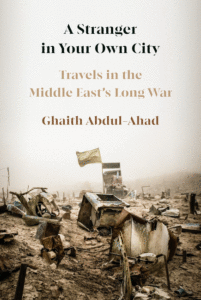
Eleanor Catton’s Birnam Wood, Catherine Lacey’s Biography of X, Matthew Desmond’s Poverty, By America, and Sebastian Barry’s Old God’s Time all feature among the Best Reviewed Books of the Month.
1. Birnam Wood by Eleanor Catton
(Farrar, Straus and Giroux)
15 Rave • 3 Positive • 1 Mixed • 1 Pan
Read an excerpt from Birnam Wood here
“Bold, ambitious … A grand, chilling thriller tightly bound by inescapable concerns … Birnam Wood moves at a faster clip with arguably higher stakes. Make no mistake: It’s a book that grips you by the throat until its final paragraph. Catton successfully scorches the earth with her prose … Little feels certain or safe. The literary novel binds itself with a genre thriller in Catton’s hands … Free to play with form, Catton winds methodically through the minds of her characters … I’ll unabashedly state that Birnam Wood is a brash, unforgettable novel.”
–Lauren LeBlanc (The Boston Globe)
2. Biography of X by Catherine Lacey
(Farrar, Straus and Giroux)
10 Rave • 4 Positive • 1 Mixed
Read an excerpt from Biography of X here
“Criminally good … Delightful … Lacey’s ingenious and playful methods enact the same shape-shifting quality that this novel explores. She seamlessly alters and repurposes the work and words of countless artists and writers … Lacey plunges us into the most pressing contemporary conversation about the performance of the self, means of representation, commodification of identity, and how identity markers are often fixed, though identity itself is not static.”
–Ayden LeRoux (BOMB)
3. Old God’s Time by Sebastian Barry
(Viking)
8 Rave • 4 Positive
Listen to Sebastian Barry read an excerpt from Old God’s Time here
“beautiful, tragic book … Barry is a poet and playwright as well as a novelist, and lyricism and drama jostle in nearly all his sentences, many of which are stuffed to bursting … The novel’s ending is a dramatic exploration of the possibility of atonement. One cannot say for sure whether his putative redemption is ‘verifiably’ real or fantastical, but there can be no doubt about how Tom feels. The final pages are ravishing.”
–Adam Begley (The Atlantic)
**
1. Poverty, By America by Matthew Desmond
(Crown)
6 Rave • 7 Positive
“A lucid and scathing explanation for one of our nation’s abiding injustices … Desmond’s new book is primarily a polemic. It is impeccably researched and bolstered by seventy-six pages of dense notes—those seeking further source material will certainly find it—but Desmond wishes to influence a broad swath of American readers, not an academic coterie … Desmond’s book makes an urgent and unignorable appeal to our national conscience, one that has been quietly eroded over decades of increasing personal consumption and untiring corporate greed.”
–Claire Messud (Harper’s)

2. We Were Once a Family: A Story of Love, Death, and Child Removal in America by Roxanna Asgarian
(Farrar, Straus and Giroux)
7 Rave • 1 Positive
“[Asgarian’s] bracing gut punch of a book, We Were Once a Family, is a provocative mix of immersive narrative journalism, rigorous social policy analysis and proud advocacy. It pulls back the focus from the horrific crash to investigate, thoroughly and intimately, why these six children were sent out of Texas in the first place … Asgarian begins with a powerfully rendered narrative of how the second set of three children the Harts adopted—Ciera, Devonte and Jeremiah—were caught up in the wheels of a Texas family court … The children are killed with more than 100 pages left in the book. It is here that Asgarian fully steps into the narrative, developing deep personal ties with the children’s birth parents, their partners, their other children and their caseworkers, getting to understand the depths of their impossible life situations and the institutional neglect … The most affecting story is of Dontay Davis, the brother left behind, first institutionalized and later incarcerated.”
–Robert Kolker (The Washington Post)

3. A Stranger in Your Own City: Travels in the Middle East’s Long War by Ghaith Abdul-Ahad
(Knopf)
6 Rave • 2 Positive
Read an excerpt from A Stranger in Your Own City here
“Offers not simply an account of Iraq’s troubles but a powerful and beautifully written portrait of the soul and psychology of a nation reeling from one cataclysm to the next … Mr. Abdul-Ahad delicately evokes the fears and hopes of a nation eager to be rid of Saddam but fearful of the consequences … Early in the book, images of violence are visceral and shocking … There is a challenge and a steely optimism there, one that would have rattled my confidence back in 2007, but that gives me hope in 2023.”
–Phil Klay (The Wall Street Journal)


